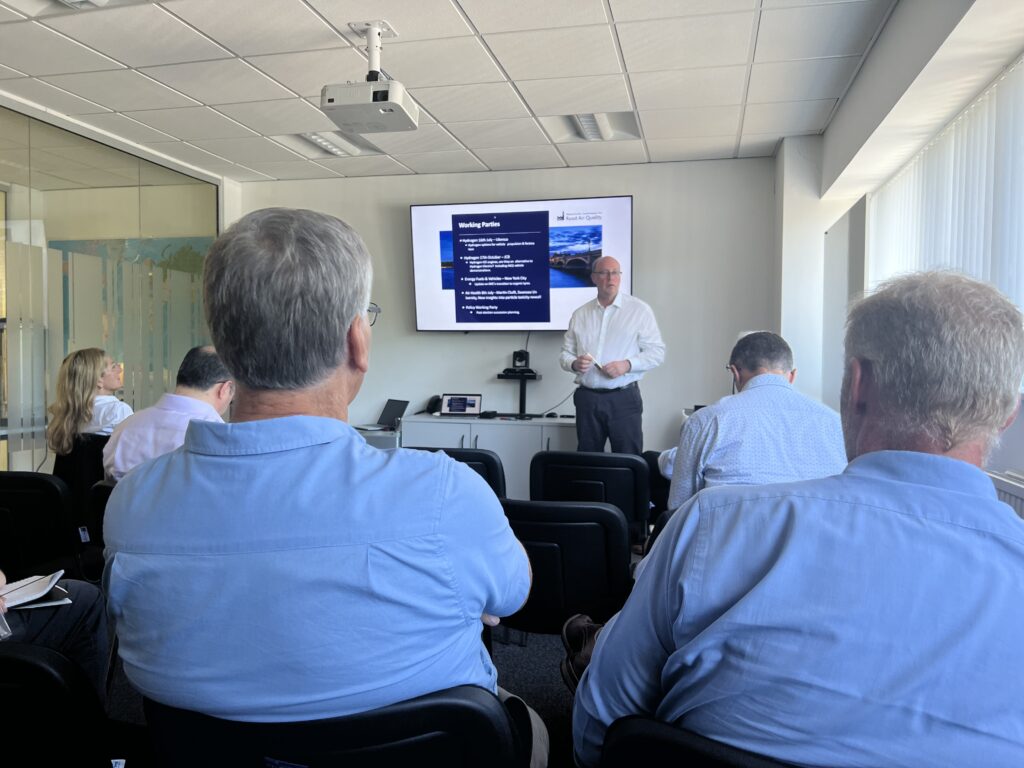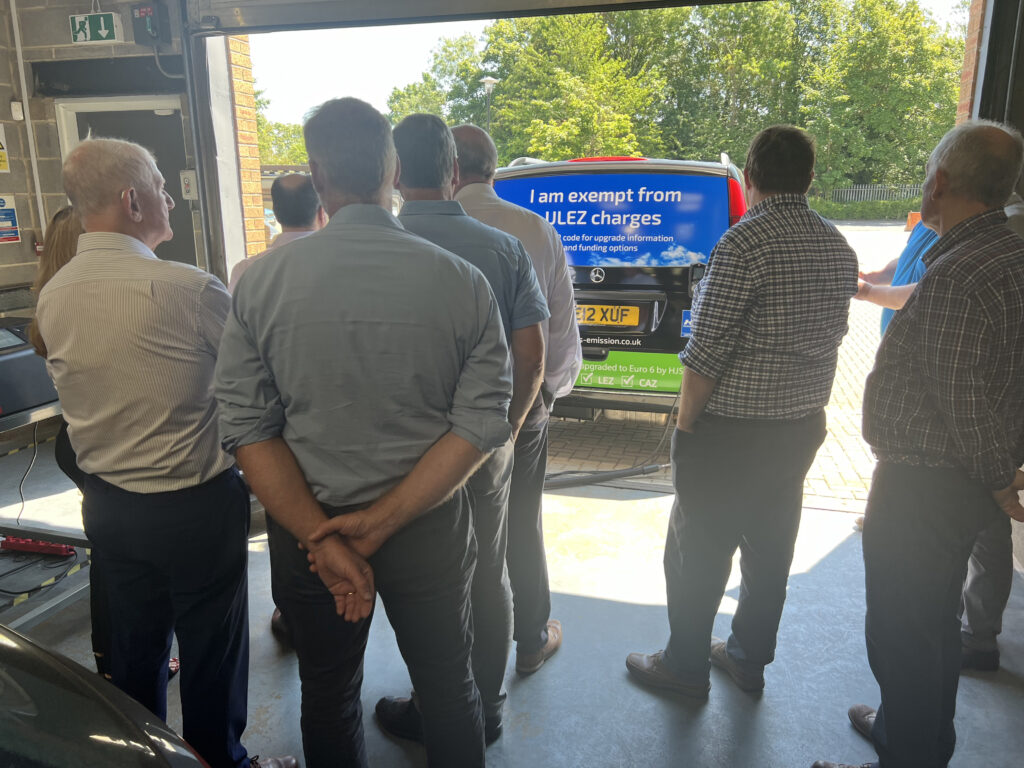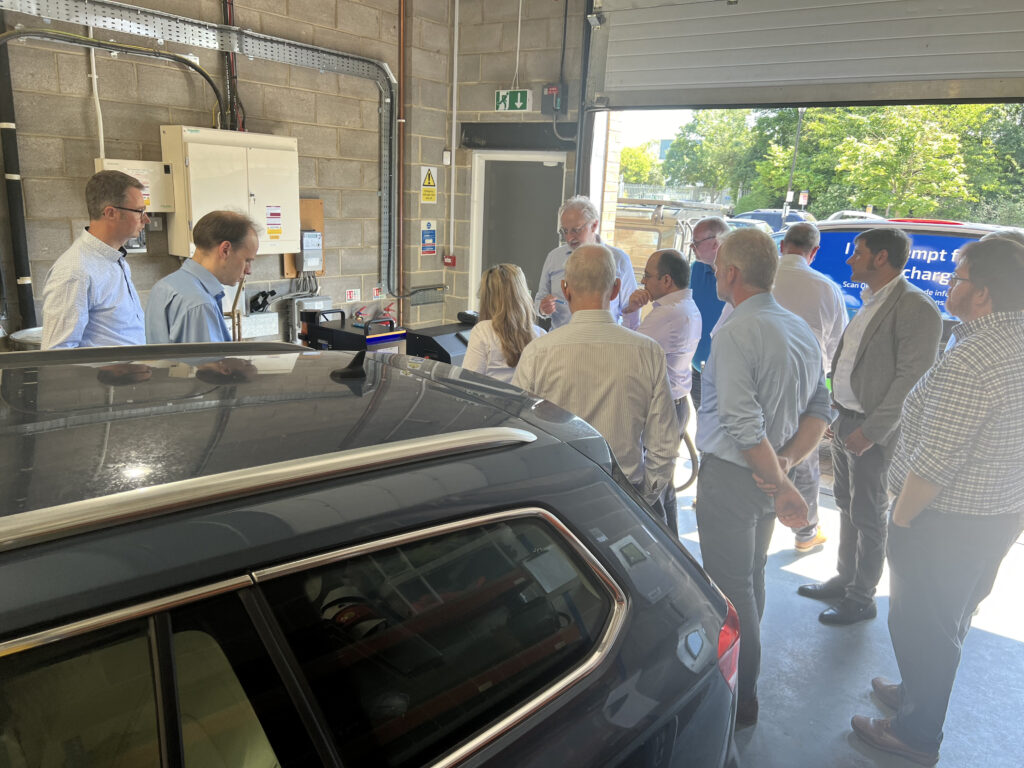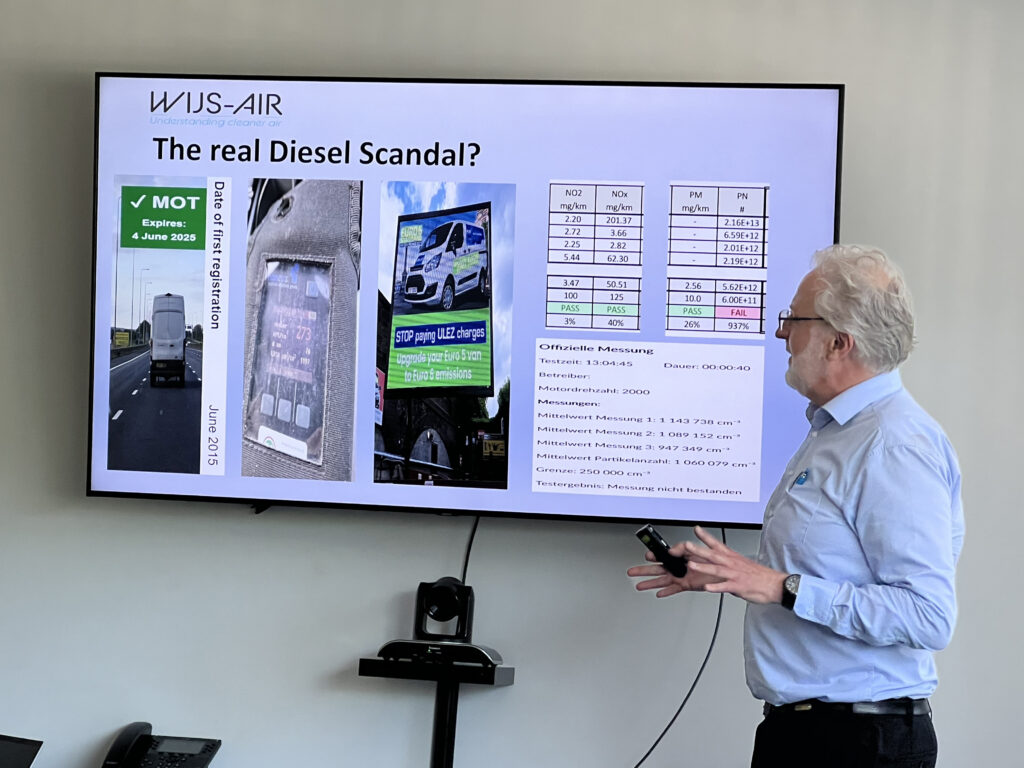At the WCRAQ Air Quality Monitoring Working Party meeting hosted by Protea in Peterborough on June 25, 2024, Chair Ralph Wilce addressed the need for the UK to adopt more robust MOT legislation to identify more high-emitting vehicles and remove them from roads.
Protea is a UK manufacturer of analysers using a range of technologies such as IR, UV, FTIR and QMS, and hosted the meeting on behalf of its parent company, Bartec Auto ID Group, which is the UK’s only manufacturer of a certified particle number counter for MOT markets where Particle Number testing is regulated.
The use of certified particle number counters could help reduce emissions from road transport in the UK if introduced as part of more stringent MOT testing, said Ralph Wilce, Chair of the WCRAQ Air Quality Monitoring working party. He cited the consistently higher emission-related MOT failure rates in countries that have successfully adopted such testing procedures at the tailpipe, and he argued that this is evidence of the approach’s effectiveness.
He said that, based on recent data provided by the national testing authorities, average emission failure rates in countries where the new PN test has been introduced, such as Belgium, Netherlands, Switzerland and Germany, ranged from around 10% for the older light duty vehicles to 4-5% for newer variants with Euro 6 emission standards.
Previously, the outdated smoke meter test, even when used in combination with on-board diagnostics, would fail less than 1% of such Euro 6 vehicles, leaving the so-called ‘dirty emission tail’ of gross polluting vehicles to continue to poison the air with toxic and carcinogenic combustion-generated nanoparticles.
In his presentation, Ralph explained how a high-emitting vehicle, despite having a recent MOT certificate, would significantly ‘infect’ in-cabin air quality in the vehicle following behind. With the windows closed and air conditioning on, ambient air particle number exposures for those inside increased to well in excess of the new PN tailpipe emission limits of 250,000 pt/cm3 and more than 25 times what could be regarded as a safe hourly exposure limit. ‘These particles are generated from the combustion process. They are toxic, classed as carcinogenic, and should be filtered by a working particulate filter.’
VERT Association’s CEO, Dr Lauretta Rubino, explained that educating the market and the public on the effects of faulty or missing particulate filters (DPF) and gasoline vehicles is essential. VERT is dedicated to promoting the best available technologies for emission control and providing solutions to eliminate ultrafine particle emissions to mitigate health and environmental effects, including global warming.
Lauretta delivered a keynote speech on the AeroSolfd project, the New MOT (NPTI) testing campaign of 1,000 in-use gasoline vehicles, and the dirty tail phenomenon of both the diesel and gasoline fleets. In her presentation, she discussed identifying and eliminating dirty emissions tails from diesel and gasoline vehicle fleets.
‘The AeroSolfd project, with gasoline particulate filter (GPF)-retrofit of gasoline vehicles, aims for a widespread introduction of GPF to reduce nanoparticle emissions from high mileage vehicles and will also serve as a platform to continue research on PN and secondary emissions from both DI and PFI engines,’ said Lauretta. ‘The very likely “still presence” of gasoline vehicles until 2035 and beyond justifies the need for GPF retrofit and mitigation measures for vehicle fleets’ dirty-tail phenomena as a fast solution to cleaner mobility. Clean air and clean mobility cannot be a privilege but should be a right for all.’
Everyone has seen cars on the road with black smoke coming from exhaust pipes. However, the audience at the working party meeting did not realise that high particle number emissions from modern diesel are often invisible to the eye and so toxic to public health. ‘We have a duty in the UK to take these high emitters and non-PN compliant in-use vehicles off the road,’ said Ralph. ‘Compliance through more stringent MOT testing is critical to improving the air we breathe.’
At the end of 2024, WCRAQ participated in an online review meeting on PN-PTI implementation as a new associate member of the VERT Association. With more than 70 participants from across the world, the meeting agenda included presentations from metrology institutions, emission authorities, testing organisations, and instrument manufacturers in addition to updates on NRMM (non-road mobile machinery) applications, PN-PTI worldwide, and news on extending PN testing to gasoline engines.
The meeting reviewed results from countries where the new particle number test has been implemented, such as Belgium, Netherlands, Switzerland, and Germany. It also promoted new international adopters of the test in accordance with EU recommendations.
We are pleased to announce that several new countries are close to implementation, and we will continue to support their efforts to ensure vehicles remain emission-compliant during their lifetimes. Our efforts continue to assist the Department of Transport in the UK and the Ministry of Infrastructure in Northern Ireland.
We believe that the publication and implementation of the new EU Ambient Air Quality Directive of 14 October 2024 and the requirement to measure ambient Ultrafine Particles based on WHO and EKL (Swiss) recommendations supports the emphasis on Ultra Fine Particles (UFP) as a critical air contaminant and thus the selection of Particle Number (PN) for quality control of combustion engines.
Because of the importance of ambient nanoparticle monitoring, the Air Monitoring Working Group at the WCRAQ is planning an online meeting on 16 March 2025 to consider the implications of the new EU Directive, together with the current standards for reference instruments and how indicative measurements can also add value with three major experts in the field from TSI, Naneos and Nanodust. Please keep an eye out for the confirmed date and times.







